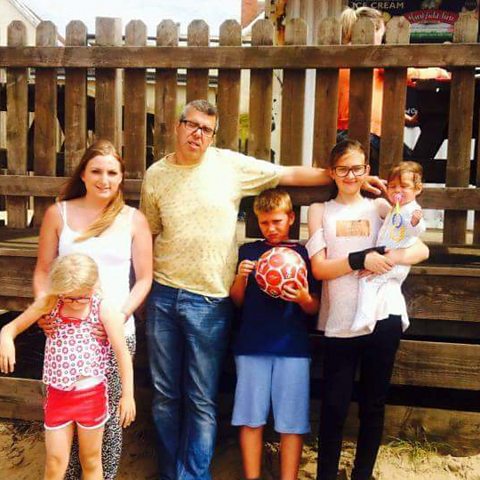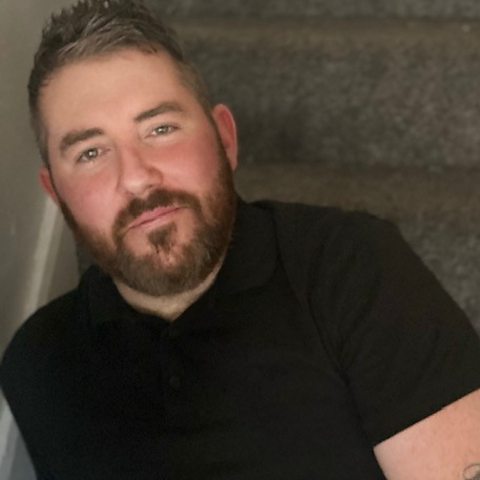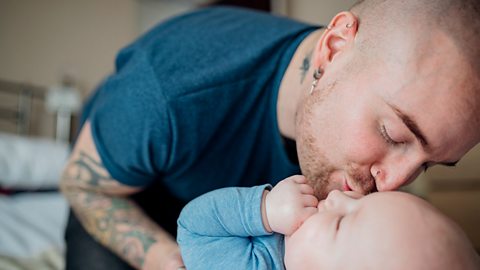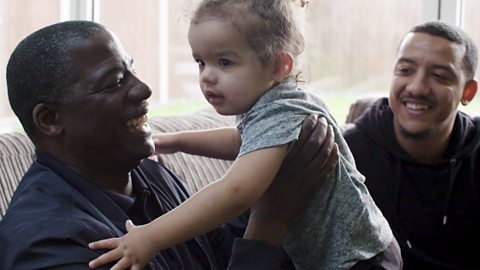Having a baby is potentially one of the best things that will ever happen to you, but that doesnÔÇÖt mean itÔÇÖs always easy. Parenthood can be overwhelming, from childbirth itself, to the sleepless nights and the worries of ÔÇÿgetting things rightÔÇÖ.
And sometimes the stresses of parenting can lead to a very common condition called . This is something that can affect any parent after having a baby, and can impact upon everything from your appetite to your sex drive.
It's not just mums either, it may surprise you to know that PND affects a lot of dads too. A 2016 study of over 40,000 new dads found that 8% suffered from postnatal depression.
With International Men's Day and the Movember initiative currently shedding light on male mental health, we spoke to dads Scott and Chris to find out how postnatal depression affected them.
Chris' story

Chris is 48 and married with six children. He became a nurse 17 years ago, starting out in mental health, an area he sometimes comes back to in his work today.
He first realised he had postnatal depression when his youngest daughter, now 5, was 2 years old.
I went to see my GP and they went though a few things, and said that I may be suffering from postnatal depression, which I laughed at. I said ÔÇÿmen donÔÇÖt get that, only women do.ÔÇÖ
I had more tests and I was told I definitely had it I felt shame, I felt like I was a failure to everyone, especially my wife. He had a number of symptoms: I had mood swings, inability to concentrate, low sex drive, feeling worthless, and I didnt want to talk to any of my friends, family or colleagues.
Chris says that a lot of what he was feeling stemmed from the fact that he couldnÔÇÖt spend time with his daughter. After two weeksÔÇÖ paternity leave, he went straight back to doing 12 hour shifts on the ward, after which he was simply too exhausted to stay awake and play with his baby. ÔÇ£I think I felt a little left out and probably, to be honest, slightly selfish, as I wanted time with my new daughter and my other children.ÔÇØ
This also led to feelings of guilt, which contributed to his postnatal depression.
Talking to people about how he felt was extremely difficult: ÔÇ£I was brought up [to believe] that men are ÔÇÿhardÔÇÖ, and we were told that men donÔÇÖt fall, and we have to be men of the house.ÔÇØ
Eventually though, after his eldest daughter noticed something wasnÔÇÖt quite right, he started to open up about his feelings.
After speaking to his GP and talking through his problems, heÔÇÖs now doing tonnes better, and has a fantastic relationship with his kids and is even a grandad now.

ScottÔÇÖs story

Scott and his wife Sarah met at college and have seven children, all sons, ranging in age from two to 17. Their first child was born while Scott was serving in the army. He suffered several injuries while in service, and a few months into the pregnancy, temporarily went blind. At the time this was an incredibly devastating blow.
ÔÇ£Emotionally, I think that's sort of where things started from because I thought ÔÇÿI'm never going to see my sonÔÇÖ. That's where I think this seed was planted of feeling like I'm never going to be good enough.ÔÇØ
When his son was born and a lot of his sight came back, things began to get better - the overwhelming joy he felt when spending time with him started to outweigh all of the negative thoughts and feelings heÔÇÖd been having up until then.
But things took another difficult turn 15 years later, when ScottÔÇÖs seventh son was born. There were some serious complications with the birth, which led to Sarah being diagnosed with a number of serious conditions. At one point, it got as bad as it possibly could: ÔÇ£I remember standing there, and I had almost resigned myself to the fact that she was going to die.ÔÇØ
Scott says he tried to raise the alarm a number of times when he realised things were wrong, but felt at first, and for some time, that he wasnÔÇÖt being listened to. Not only that, but during this time, it was rare for someone to ask him if he was okay too: ÔÇ£I couldnÔÇÖt really talk to anybody because everything was about Sarah, which was rightly so.ÔÇØ
Scott had long been taught that men are supposed to be tough, and so he felt ashamed about the way he was feeling in that moment. This, coupled with fearing for SarahÔÇÖs life, and the frustration that he felt he wasnÔÇÖt always being taken seriously, was a brutal combination for him: ÔÇÿÔÇ£IÔÇÖve had the worst experience of my life and it and it broke me in ways that I didnÔÇÖt think I would ever recover from.ÔÇÖ
This is why Scott now works with hospitals to share his experience and act as support for other dads experiencing similar issues. ItÔÇÖs crucial to him that dads get the support they need through pregnancy and childbirth, because he doesnÔÇÖt want anyone else to have to go through what he did.
Speaking about the problems he faced has been a key part in ScottÔÇÖs recovery, but he admits that this isnÔÇÖt always easy. In particular, he thinks that it can be more difficult for men to open up: ÔÇ£A man is supposed to be strong; youÔÇÖre not supposed to talk about emotions. And you're the provider. You're supposed to look after the family, so you're not allowed to accept that something's wrong.ÔÇØ This is something he thinks needs to change:
You have to talk, you have to tell someone, even if it's a stranger. You just have to talk and explain how you're feeling.

Advice for dads
ThereÔÇÖs a lot of stress that comes with being a parent, and this doesnÔÇÖt always mean that youÔÇÖre suffering from ill mental health. However, .
ItÔÇÖs extremely important to see your GP if you think you may be struggling with postnatal depression, but what else can struggling new dads do to help with their mental health?
Chris has a few tips to share:
- ÔÇÿItÔÇÖs important to be open to the fact that ÔÇô even if you and/or your partner have no history of mental health problems ÔÇô it is something that you might need to deal with. Preparation and communication are both keyÔÇÖ
- ÔÇÿAttending appointments with your partner will help you feel more involved in the arrival of your new baby and also give you the opportunity to ask questions about things that may be worrying youÔÇÖ
- ÔÇÿIf youÔÇÖre lucky, there may be a specific support group for dads in your area, or you can reach out to national organisations such as , or ÔÇÖ
Further advice about postnatal depression
Organisations like , and ÔÇÖ all offer support with parents' mental health issues, including PND.
│╔╚╦┐ý╩Í Action Line has links to organisations that may be able to help with a range of problems, including mental health issues.
To find out more about Movember, visit their






